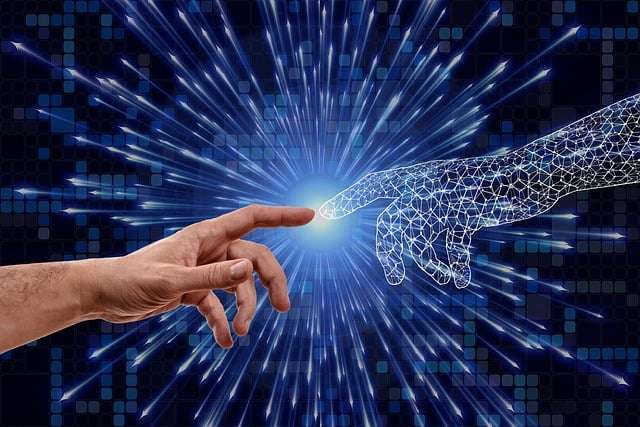
Technology
All Your Burning Technology Questions, Answered
In the ever-evolving landscape of technology, it’s natural to have burning questions about the latest trends, innovations, and developments. Whether you’re curious about the inner workings of artificial intelligence or pondering the implications of blockchain technology, navigating the complexities of the digital age can be overwhelming. But fear not! In this comprehensive guide, we’ll delve deeper into these pressing issues, providing detailed answers and insights to satisfy your curiosity and help you navigate the ever-changing landscape of technology. So, sit back, relax, and let’s dive into the fascinating realm of technology.
In a world where technology evolves at breakneck speed, it’s easy to feel overwhelmed by the constant stream of new innovations and developments. From artificial intelligence to blockchain, from cryptocurrency to ethical considerations, the realm of technology is vast and complex, leaving many with burning questions about its intricacies and implications.

1. What is Artificial Intelligence (AI) and How Does It Work?
Artificial intelligence, often referred to as AI, is a branch of computer science that aims to create intelligent machines capable of performing tasks that typically require human intelligence. These tasks include problem-solving, decision-making, speech recognition, and language translation. AI systems learn from data, identifying patterns and making predictions based on statistical algorithms. Artificial intelligence refers to the simulation of human intelligence in machines, enabling them to perform tasks that typically require human cognitive abilities, such as learning, problem-solving, and decision-making. AI systems rely on algorithms and data to analyze patterns, recognize trends, and make predictions. AI has a wide range of applications across various industries, including healthcare, finance, transportation, and entertainment. In healthcare, AI-powered diagnostic tools can analyze medical images and patient data to assist doctors in diagnosing diseases and planning treatments. In finance, AI algorithms can analyze market trends and trading patterns to make investment decisions and manage risk. In transportation, AI is driving the development of autonomous vehicles that can navigate roads safely and efficiently. Machine learning, a subset of AI, involves training algorithms on large datasets to improve performance over time. Deep learning, another subset, uses neural networks inspired by the structure of the human brain to achieve remarkable results in tasks such as image recognition and natural language processing, and more.

2. What is Blockchain Technology and Why is it Important?
Blockchain technology is a decentralized, distributed ledger system that records transactions across multiple computers in a secure and transparent manner. Each transaction is verified by network participants and added to a "block," which is then linked to previous blocks, creating a chain of blocks known as the blockchain. Blockchain technology has gained popularity as the underlying technology behind cryptocurrencies such as Bitcoin and Ethereum, but its potential extends far beyond digital currencies. Blockchain has the potential to revolutionize a wide range of industries, including finance, supply chain management, healthcare, and voting systems. In finance, blockchain technology enables peer-to-peer transactions without the need for intermediaries such as banks, reducing costs and increasing efficiency. In supply chain management, blockchain can provide transparency and traceability, allowing consumers to track the origins of products and verify their authenticity. In healthcare, blockchain technology can secure patient records and facilitate interoperability between different healthcare providers. Each block in the blockchain contains a cryptographic hash of the previous block, creating a chain of blocks linked together chronologically. Blockchain technology is important because it enables secure, transparent, and immutable record-keeping without the need for intermediaries such as banks or government institutions. It has applications in various industries, including finance, supply chain management, healthcare, and beyond, offering opportunities for increased efficiency, transparency, and trust in digital transactions.

3. How Does Cryptocurrency Work and What Are Its Benefits?
Cryptocurrency is a digital or virtual currency that uses cryptography for secure transactions and to control the creation of new units. Unlike traditional fiat currencies issued by governments, cryptocurrencies operate on decentralized networks based on blockchain technology. Transactions are verified and recorded on the blockchain through a process called mining, which involves solving complex mathematical puzzles. Cryptocurrency offers several benefits, including decentralized control, lower transaction fees, increased privacy, and protection against fraud and identity theft. Bitcoin, Ethereum, and Ripple are among the most popular cryptocurrencies in circulation today. Bitcoin, the first cryptocurrency, was created in 2009 by an anonymous person or group of people using the pseudonym Satoshi Nakamoto. Since then, thousands of cryptocurrencies have been created, each with its own unique features and use cases. Ethereum, for example, is a blockchain platform that enables the creation of smart contracts and decentralized applications (DApps). Ripple, on the other hand, is a cryptocurrency designed for fast and low-cost international money transfers. Cryptocurrency has the potential to revolutionize the financial industry by providing an alternative to traditional banking systems and fiat currencies. It offers greater financial freedom, privacy, and security to users, especially those in countries with unstable or restrictive banking systems. However, cryptocurrency also poses challenges, including regulatory uncertainty, price volatility, and concerns about illegal activities such as money laundering and fraud.

4. What Are the Ethical Considerations Surrounding Artificial Intelligence?
As artificial intelligence becomes increasingly integrated into our daily lives, ethical considerations surrounding its use have come to the forefront. Issues such as algorithmic bias, privacy infringement, and job displacement raise concerns about the ethical implications of AI technology and the responsibilities of those who develop and deploy it. Algorithmic bias occurs when AI systems inadvertently perpetuate or amplify existing biases present in the data used to train them, leading to discriminatory outcomes. For example, facial recognition algorithms trained on biased datasets may exhibit higher error rates for certain demographic groups. Addressing algorithmic bias requires careful data collection, diverse representation in training datasets, and ongoing monitoring and evaluation of AI systems. Privacy infringement is another ethical concern in technology, particularly in the age of big data and ubiquitous surveillance. With the proliferation of internet-connected devices and social media platforms, individuals are generating vast amounts of personal data that can be collected, analyzed, and exploited by corporations and governments. Privacy concerns arise from the vast amounts of personal data collected and analyzed by AI systems, raising questions about consent, transparency, and data ownership. Additionally, the potential for AI to automate tasks traditionally performed by humans raises ethical questions about job displacement, inequality, and the future of work. Protecting privacy requires robust data protection laws, user consent mechanisms, and encryption technologies to safeguard sensitive information from unauthorized access and misuse. Job displacement is a growing concern as automation and artificial intelligence increasingly replace human workers in various industries. While technology has the potential to create new jobs and enhance productivity, it also threatens to disrupt traditional employment patterns and exacerbate inequalities. Addressing job displacement requires retraining and upskilling workers for new roles, implementing policies to support displaced workers, and fostering an environment of lifelong learning and adaptability.

5. . How Can Technology Address Global Challenges Such as Climate Change and Healthcare Access?
Despite the ethical challenges posed by technology, it also holds immense potential to address pressing social and environmental issues. From combating climate change and improving healthcare access to promoting education and economic development, technology can be a powerful force for positive change. In the fight against climate change, technology plays a crucial role in developing renewable energy sources, smart grids, reducing carbon emissions, and mitigating the impacts of global warming and storage offer sustainable alternatives to fossil fuels and contribute to reducing greenhouse gas emissions. Solar panels, wind turbines, and battery storage systems are examples of clean energy technologies that can help transition away from fossil fuels and towards a more sustainable energy future. Smart grid technologies enable efficient distribution and management of electricity, while carbon capture and storage technologies capture CO2 emissions from industrial sources and prevent them from entering the atmosphere. In the healthcare sector, telemedicine, wearable devices, and artificial intelligence are revolutionizing patient care, improving access to healthcare services, and enabling early detection and diagnosis of diseases. Technology has the potential to improve access to quality healthcare services, especially in underserved and remote areas. By harnessing the power of technology, we can develop innovative solutions to mitigate the impacts of climate change, improve healthcare outcomes, and create a more sustainable and equitable world for future generations. Telemedicine platforms allow patients to consult with healthcare providers remotely, reducing the need for travel and increasing access to specialist care. Wearable devices and mobile health apps enable individuals to monitor their health status, track their fitness goals, and manage chronic conditions from the comfort of their homes. Artificial intelligence is also transforming healthcare delivery by enabling early detection and diagnosis of diseases, personalized treatment plans, and predictive analytics for population health management. In education, technology has the potential to expand access to quality education and lifelong learning opportunities for people of all ages and backgrounds. Online learning platforms offer a wide range of courses and resources, allowing students to learn at their own pace and on their own schedule. Virtual reality and augmented reality technologies enhance the learning experience by providing immersive simulations and interactive content. Artificial intelligence can personalize learning pathways based on individual preferences and learning styles, improving engagement and retention.
Conclusion:
In the fast-paced world of technology, staying informed and curious is key to unlocking its full potential and navigating its complexities. The world of technology is vast and multifaceted, encompassing a wide range of innovations, challenges, and opportunities.
By exploring the answers to these burning technology questions, we gain a deeper understanding of the transformative impact of AI, blockchain, cryptocurrency, and other emerging technologies on our lives and society as a whole. From artificial intelligence and blockchain to cryptocurrency and ethical considerations, technology shapes the way we work, communicate, and interact with the world around us.
As we continue to innovate and push the boundaries of what is possible, let’s embrace the opportunities and challenges that technology presents with curiosity, responsibility, and a commitment to shaping a brighter future for all.
So, keep asking questions, seeking answers, and exploring the vast and exciting world of technology—it’s a journey worth embarking on.